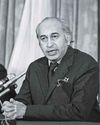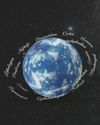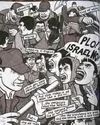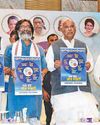
AROUND the halfway mark in Vishal Bhardwaj's Haider (2014), we enter Faraz Cinema. "Main hun diwaana tere pyaar ka, peecha na chhodunga tera," sings Salman Khan, like a dutiful stalker, on screen. A wide shot shows the Indian Army officers, as viewers, enduring varied stages of boredom-some drinking, some sleeping, some barely awake. Then, a door opens, and convicts line up in front of the screen. An officer signals the projectionist to stop; the interrogation-or the real film-has to start.
This Hamlet adaptation, much like its setting, Kashmir, inverts conventions, mocks normalcy, and distorts identities.
So a theatre, promising freedom from the captivity of mundane life, functions as a prison. The multiplicity of identities here isn't just restricted to inanimate things.
Because in the same theatre, Haider's father, "Doctor" (Narendra Jha), notices an "aasteen ka saanp"-a man whom he considered bhai, Khurram (Kay Kay Menon), morphed into the Army's informer-a brother turned betrayer. In a drama centred on a conflict-torn land, coveted by two countries, it makes poetic and perfect sense that dualities define Haider.
Consider its more literal example: the Army officials stopping and checking the IDs of regular Kashmiris, reminding them that they need permission to enter their own homes. Or making them feel, as a character says later, that "All of Kashmir is a prison". These ID checks, even more than the Faraz Cinema scene, examine and extrapolate identity and duality, as the 'correct' documents make all the difference: between allowed and detained, insider and infiltrator, home and prison.
Diese Geschichte stammt aus der October 11, 2024-Ausgabe von Outlook.
Starten Sie Ihre 7-tägige kostenlose Testversion von Magzter GOLD, um auf Tausende kuratierte Premium-Storys sowie über 8.000 Zeitschriften und Zeitungen zuzugreifen.
Bereits Abonnent ? Anmelden
Diese Geschichte stammt aus der October 11, 2024-Ausgabe von Outlook.
Starten Sie Ihre 7-tägige kostenlose Testversion von Magzter GOLD, um auf Tausende kuratierte Premium-Storys sowie über 8.000 Zeitschriften und Zeitungen zuzugreifen.
Bereits Abonnent? Anmelden

Trump, Up And Charging
'Many countries are nervous about Donald Trump returning to power, but India is not one of them'

Post and Past the Oil in Azerbaijan
As the UN climate conference takes place in Baku, Azerbaijan traces the history of the hydrocarbon industry through the lens of postage stamps

Bhutto's Nehru Story
Nehru's principle of \"compromise and argument\" remains the only workable formula for South Asian leaders

Breathless on Bachchan
Cédric Dupire's documentary The Real Superstar is an irreverent, experimental archive of Amitabh Bachchan's life and his stardom

The Anaphora to Zeugma of the Queen's English
Shashi Tharoor's book is a logophile's candy shop, full of fun, surprises and insights

The Wind Knocked
THE wind knocked on the door. Hesitantly. Wanting to be let in. It had heard the murmuring of the flames. And knew that there was a fire. The wind sought shelter.

The Way Home
“We comfort ourselves by reliving memories of protection. Something closed must retain our memories, while leaving them their original value as images. Memories of the outside world will never have the same tonality as those of home and, by recalling these memories, we add to our store of dreams; we are never real historians, but always near poets, and our emotion is perhaps nothing but an expression of a poetry that was lost.”—Gaston Bachelard, The Poetics of Space

The War Artist
Cartoonist and journalist Joe Sacco is in search of the truths distorted by conventional narratives

Mining Adivasi Votes
If the BJP manages to win Jharkhand, it will be the third mineral-rich state after Odisha and Chhattisgarh that will fall into the party's kitty

Unequal Republic
Political parties make promises of equal represention to women, but patriarchy continues to dominate electoral democracy